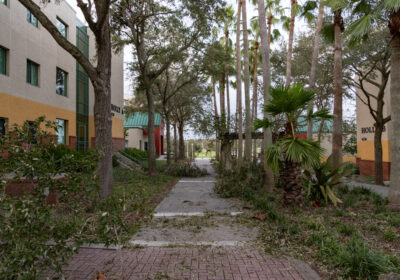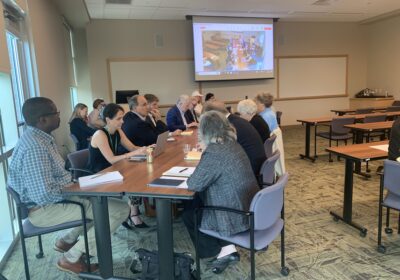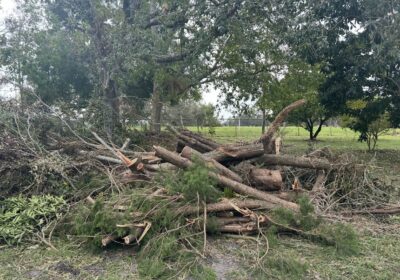Oil spill grant furthers USF research
Within weeks of the Deepwater Horizon oil spill, researchers at the College of Marine Science were collecting water samples and raising controversy with their reports of subsea oil plumes.
Now, thanks to an $11 million research grant, announced on August 30 from BP’s Gulf of Mexico Research Initiative, the college has enough funds to continue its research for the next three years.
The college is the leading institution in a 16-member research consortium, said Dean Jackie Dixon, who said the researchers chosen for the three-year study were “what we thought were the strongest group of scientists.” The consortium’s proposal was one of eight chosen by BP out of 77 proposals received nationwide. Proposals needed to conform to one or more of five possible themes, she said.
“We put together a proposal to integrate themes one, two and three,” she said. “The physical dispersion of the oil, the chemical partitioning of oil and gas and dispersants during a deep sea spill of this type and then the impact of the outflow from the spill on the ecosystem.”
She said much of the research that is being proposed is a continuation of the research that began within weeks of the April 20 oil spill.
“You have to understand what part of it floats, what part of it gets suspended for long periods of time in deep sea plumes, and what part of it sinks to the ocean floor,” she said. “So each of those different components are going to impact, you know, the fish and the plankton and the marine mammals in different ways. So you have to understand the partitioning to understand the impact.”
USF’s fisheries expert and biological oceanographer Steve Murawski will serve as the study’s principal investigator. Though the college’s discovery of oil plumes raised controversy and denials from BP last year, he said the relationship has smoothed.
“I think the relationships with the company BP and the researchers and government regulators and researchers has become a little more collegial,” Murawski said. “It’s pretty clear that there’s unique experience on either side. BP is naturally going to be skeptical of the findings and they put their money at arm’s length to the company. It’s not being run by executives from the company, it’s being run by scientists with great credibility.”
This summer, Murawski studied fish species in the Gulf that had developed “unusual pathologies,” including large open ulcers on their skin and unusual outbreaks of parasites.
“We’re trying to figure out what are the backgrounds to these diseases?” he said. “What might be contributed by the Deepwater Horizon oil spill?”
David Hollander, a chemical oceanographer who Dixon said played a leading role in identifying the deep sea oil plumes, will also be a part of the study. Hollander said another accident like the Deepwater Horizon spill will probably happen again and researchers must plan for that possibility.
“This is a scenario that, although it was the first time, it will probably not be the last time,” he said. “These are not limited to the Gulf of Mexico. If we get this right, we have the capabilities of forecasting consequences of deep sea blowouts all across the world, and that’s probably the most significant component.”
The Florida Institute of Oceanography consortium’s study will last for three years, but the grant is eligible for renewal.






